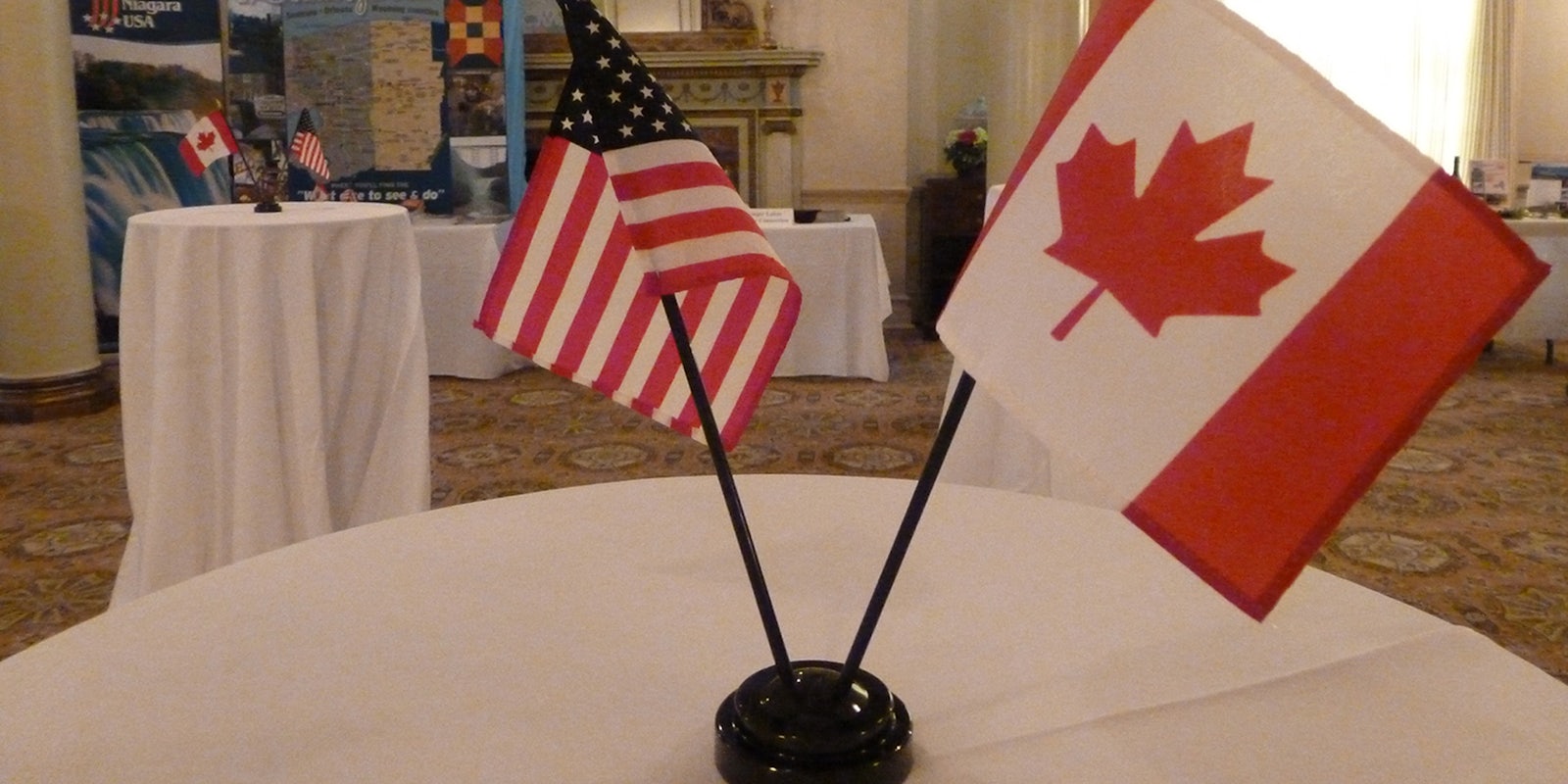There’s something very Canadian about Barack Obama’s firm stance on net neutrality.
The U.S. President last week came out forcefully in favor of the Federal Communications Commission (FCC) reclassifying the Internet as a Title II service, which would give the regulator jurisdiction over access providers and establish broadband service as a public utility, like electricity or water.
“We cannot allow Internet service providers to restrict the best access or to pick winners and losers in the online marketplace for services and ideas,” Obama said in a speech.
“I am asking the Federal Communications Commission to answer the call of almost four million public comments and implement the strongest possible rules to protect net neutrality.”
Canada has had such strong net neutrality rules—that is, a framework prohibiting ISPs from unduly discriminating between different types of traffic and which bars paid prioritization or so-called “fast lanes”—since 2009.
Moreover, Obama’s tough stance echoes Canada’s own head of state. Prime Minister Stephen Harper and his government have been actively trying to rein in telecommunications service providers since 2007.
As the public’s discontent with Internet, phone and cable providers grows, it seems the U.S. is simply catching up to its northern neighbor.
“Harper has made the connection between telecom policy and actual votes, and that has had enormous impact on public policy,” says Michael Geist, the Canada Research Chair in internet and e-commerce law at the University of Ottawa. “This is a ballot-box or pocket-book issue that hasn’t really been seen yet in the United States.”
The Harper government’s first shot at the telecom industry came in 2007, when it announced that an auction of wireless spectrum—the lifeblood of the cellphone industry—would be tilted toward new entrants. Existing players, which included Canada’s “Big Three” of Bell, Rogers and Telus, were prohibited from bidding on nearly half of the licenses being sold.
The decision was provoked by high wireless rates in the country. Canadians and Americans pay the highest and second-highest wireless bills in the world, at an average $56 and $50 respectively, according to the Bank of America Merrill Lynch Global Wireless Matrix. The average among industrialized countries is $40.
A host of new investors took part in the auction and several new quasi-national wireless companies arose as a result. A pair of regional cable companies also got into the business.
In 2009, the Canadian Radio-television and Telecommunications Commission (or CRTC, Canada’s version of the FCC) laid out its Internet Traffic Management Practices, a framework for net neutrality. Unlike the FCC, the CRTC had legal authority to regulate Internet services under the Canadian Telecommunications Act.
The rules prohibited ISPs from interfering with internet traffic, except as a last resort, and urged them to instead combat network congestion with “economic measures” such as new investment or usage limits.
Those limits have resulted in relatively low monthly caps for Canadians, but the rules have kept neutrality violations to a minimum. In cases where Internet service providers (ISPs) have transgressed, like when cable provider Rogers was found to be slowing online video games in 2011, the CRTC managed to quickly pull them back in line.
“When the CRTC comes out with a plan, you have a broad public consultation and everybody has their say and you get on with it,” says Rob Frieden, the Pioneers Chair and professor of telecommunications and law at Penn State University. “That’s opposed to ISPs [in the U.S.] saying, ‘Well, you don’t have jurisdiction and we’re going to litigate.’”
The Harper government’s fight to get telecom services and prices under control—frequently described in the Canadian media as a “war”—reached a fever pitch last year when it was setting rules for another spectrum auction. The government was seen as wooing U.S. wireless provider Verizon into entering Canada, and that it was again tilting the rules toward new entrants.
Industry Minister James Moore, Harper’s lieutenant in the battle, went so far as to accuse the Big Three of lying to sway public opinion against the government.
“I think Canadians know very well what is at stake, and they know dishonest attempts to skew debates via misleading campaigns when they see them,” Moore wrote in an open letter posted on his website. “Equally, Canadian consumers know instinctively that more competition will serve their families well through better service and lower prices.”
Verizon’s entry into Canada never materialized, but another spectrum auction is scheduled for early next year. It too will favor new entrants—potentially even the U.S. carrier.
The government is also fighting telecom companies over television services, with Harper promising in a 2013 Throne Speech—the Canadian equivalent of the State of the Union address—that it will unbundle channels and force so-called a la carte services.
The CRTC recently held hearings on how to do that. As with Obama on net neutrality, FCC Chairman Tom Wheeler followed Canada’s lead with a proposal last month to get that same ball rolling.
If Canada is ahead in terms of governmental and regulatory interest—some would say interference—in telecom markets, it’s the result of an historical artifact. Canada’s regional phone companies were at one point or another either wholly or partially owned by government. Saskatchewan’s main provider, SaskTel, still is owned by the province.
Government and regulatory oversight has therefore always been part of doing business, hence the greater acceptance of rules from all sides.
“There’s a lot of grumbling, but it’s a done deal,” Frieden says, adding that U.S. providers have largely always been privately owned.
Lobbying rules are also considerably more strict in Canada, with big corporations unable to directly contribute to political campaigns. As a result, it’s rare to see potentially conflicting situations such as Senator Ted Cruz (R-Texas), who has received donations from Comcast, tweeting opposition to issues such as net neutrality.
“Canada pales in comparison to the lobbying infrastructure in the U.S.,” Geist says.
Photo via U.S. Embassy Canada/Flickr (CC BY 2.0)


